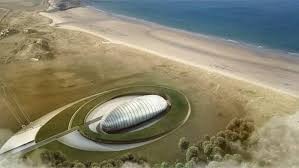Australia needs nuclear power in its energy mix, US expert
With more than $1 billion being paid to compensate coal producers under the Albanese government’s energy price caps, nuclear becomes a more cost-effective option for Australia.
News
Don't miss out on the headlines from News. Followed categories will be added to My News.
Australia would have far more reliable and secure long-term energy if it took the hundreds of millions of dollars it was paying in compensation to coal producers and instead invested it in developing a domestic nuclear power industry, one of America’s foremost nuclear experts has said.
“The irony of compensating the coal producers when they have been so vilified should not be lost on anyone,” said Mike Hewitt, retired US Navy rear admiral and CEO of a nuclear power development company IP3.
“Australia is facing the same challenges the UK is facing, where they are capping energy prices, windfall profits taxes, and giving out money so people can pay their bills.”
“Until Australia starts to think about energy sovereignty, not simply decarbonisation, these bad decisions will continue.”
On Wednesday, it was revealed that NSW coal producers were in line for as much as $500 million in compensation as part of the federal government’s price cap scheme.

The figure came on top of a further estimated $450 million to be paid to Queensland producers, though some reports have suggested the final figure could be substantially higher and push the total compensation bill to more than $1 billion.
Mr Hewitt said that instead Australia should be investing in adding nuclear to the country’s energy mix.
“Small modular reactors (SMRs) have a larger capital expense to build but provide baseload power and prices competitive to fossil fuels for 60 years,” he said, noting the repeated comments of energy minister Chris Bowen that renewables are the cheapest form of energy.
Mr Hewitt added that while the cost of small modular reactors might seem high, the price would come down as they were developed at scale.

Britain has plans to roll out around sixteen SMRs manufactured by Rolls-Royce by the end of the decade, at an full rate production cost of less than US$1.8 billion per unit.
However, Mr Hewitt said that with an “order book” approach, manufacturers would be able to lower prices further as the reactors were developed at scale.
“With the first few, you have what’s known as ‘first of a kind risk, or what I would call non-recurring engineering. The key is to get to a fleet approach where the price comes down with every subsequent order.”
“The most important thing to think about when thinking about the cost is that SMRs are like airplanes coming off a factory assembly line.”
This approach, he said, also meant that SMRs could be shipped in containers and assembled on site, eliminating the massive construction costs associated with traditional large scale reactors.
“The problem for Australia is the price caps and compensation packages will become entitlements, and then you will have a real problem.”
“Imagine over a five year span how much capital could be freed up for nuclear investment by simply going back to an ‘all of the above’ approach to energy sovereignty,” he said.




